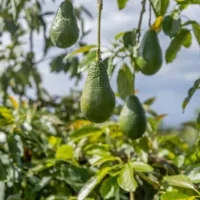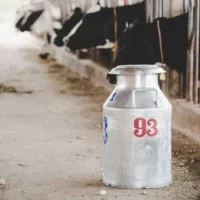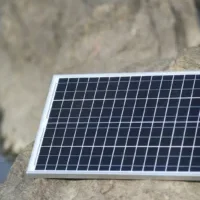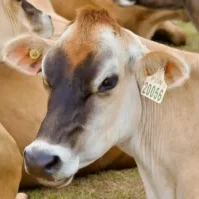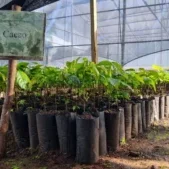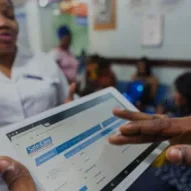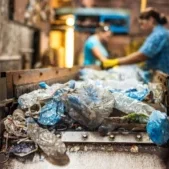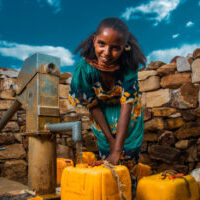
Pioneering Black Soldier Fly Farming in Ethiopia
The Challenge: Tackling Ethiopia’s Organic Waste and Protein Deficit
Ethiopia’s rapid urbanisation is generating increasing amounts of organic waste, causing soil and water pollution and contributing to the emissions of greenhouse gases. In addition, agricultural productivity in Ethiopia is severely constrained by a limited availability of protein for livestock and a lack of organic fertilisers for crop production. These constraints do not only affect the performance of the agricultural sector as a whole, but also have a devastating effect on the food and nutrition security of millions of Ethiopian producers and consumers.
The Solution: Introducing Black Soldier Fly Farming in Ethiopia
TRAIDE conducted a quick scan to identify what kind of solutions the private sector could potentially offer to these issues. Insect production, particularly Black Soldier Fly (BSF) farming, stood out as a circular approach that could address multiple issues simultaneously. The BSF technology has gained traction in other countries on the continent as an organic and sustainable solution to various food and nutrition security challenges. BSF larvae naturally consume organic waste, converting it into high-protein biomass, which can serve as an alternative to traditional animal feed sources like soybean. The nutrient-rich insect manure, known as frass, can replace or complement traditional organic fertilisers, thus addressing the need for sustainable agricultural inputs.

Black Soldier Fly (BSF) production model
TRAIDE’s Strategy to Catalyze the BSF Sector
TRAIDE saw the potential of insect farming in Ethiopia and, in collaboration with Stichting Wageningen Research, conducted a market analysis to assess the feasibility and impact of BSF farming. This study laid the groundwork for TRAIDE’s outreach activities to attract local and international stakeholders. Our efforts focused on forming a strategic partnership to adapt and optimise BSF technology for the Ethiopian context, aiming to inspire other potential BSF producers.
Download BSF Feasibility Study Ethiopia
Building a Private Sector Partnership for Insect Farming
TRAIDE identified a Dutch insect technology provider, InsectoCycle, and a locally led Dutch slaughterhouse and chicks nursery, ChicoMeat, as impactful partners. Through its Frugal InsectoCage, a state-of-the-art BSF breeding cage, InsectoCycle offers adaptable technology suitable for Ethiopian-like contexts. ChicoMeat is burdened with the poultry waste it generates and recognised the potential to implement BSF technology locally. By doing so, the company not only solves its waste issue, but also produces sustainable protein for its out-growers. TRAIDE facilitated the connection between these stakeholders, co-created the business concept and identified funding options. We jointly developed funding proposals and successfully secured project financing, including a grant from Innowide – an EU funded program to stimulate SME’s going global with their innovative solutions.

BSF larvae
Establishing a Proof of Concept for Commercial BSF Farming
Through the project, this partnership aims to showcase the BSF technology as a commercially viable solution to enhance agricultural productivity and organic waste management, and to support the development of the insect sector in Ethiopia and in Africa. More specifically, the project has the following objectives:
- Frugal InsectoCage (FIC): Designing and testing the first prototype of the FIC, providing a durable and affordable solution for BSF breeding in Ethiopian conditions.
- Substrate optimization: Developing a model for least-cost substrate formulation, enabling BSF farmers to maximize waste conversion and protein production.
- Stakeholder engagement: Conducting workshops and training sessions, educating potential BSF farmers, policymakers, and other stakeholders about the benefits and opportunities of BSF farming.
- Legal framework mapping: Initiating the drafting of national standards for BSF rearing in Ethiopia, aiming to legalise BSF as a recognized livestock.

The Frugal InsectoCage installed at Chico Meat facility in Debre Zeit (Bishoftu)
Bringing the BSF Sector to the Next Level
At TRAIDE we recognise the introduction of the BSF technology to Ethiopia as an important step towards a more circular economy, where organic waste is transformed into valuable protein, with benefits to both the environment and the Ethiopian people.
We are committed to catalyse the further development of the BSF sector in Ethiopia. We closely follow the implementation of the partnership project and promote the sharing of lessons and successes to the wider BSF landscape in Ethiopia and beyond.
Together with the Netherlands Food Partnership we stimulate public-private dialogue on BSF and the potential establishment of a BSF private sector association. To drive the sector’s expansion, we also develop new BSF business concepts with the involvement of the Dutch and local private sector.
Would you like to know more or explore collaboration? Reach out to use at ethiopia@traide.org
